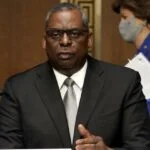For months, Sri Lanka has struggled to find enough funds to pay for imports of necessities like food, gasoline, cooking gas, and medicine.
Many Sri Lankans hold the former president Gotabaya Rajapaksa responsible for enacting a number of failed policies, such as tax cuts, a ban on chemical fertilisers that has since been lifted, and delays in applying for IMF assistance, all of which contributed to the island nation’s first-ever default on its foreign debt.
Rajapaksa had approved constitutional changes that would curtail the executive presidency’s authority and transfer it to parliament in June in reaction to widespread demonstrations. The protesters broke into his office and home the following month, forcing him to quit.
Wijedasa Rajapakshe, minister of justice, told the legislature ”This amendment will not only help bring about the system change demanded by Sri Lankans it will also help in securing an IMF programme and other international assistance to rebuild the economy.”
Sri Lanka agreed to an early loan agreement with the IMF in September for $2.9 billion in exchange for improvements to its anti-corruption regulations.
However, the amendment has come under fire from opposition parties and members of civil society for not going far enough to increase accountability and curtail governmental power.
According to Bhavani Fonseka, a research fellow at the Centre for Policy Options, a Colombo-based research institute, “this is just tinkering with presidential powers and the amendment does not implement significant change.”
“The president still retains the power to prorogue parliament, to hold ministries and the constitutional council will still have mostly government appointees.”
A needed two-thirds majority was obtained, and the modification was approved.












